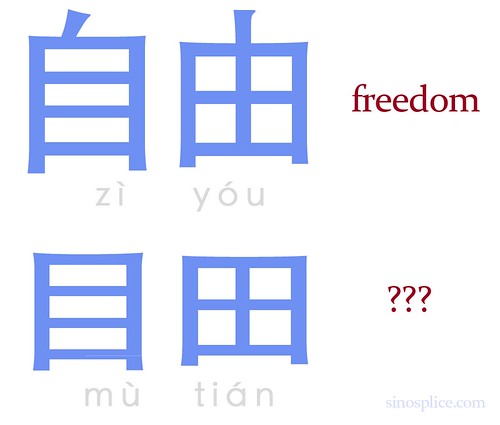Curtailed Freedom (in Characters)
There’s an interesting article on Pro Publica titled: How to Get Censored on China’s Twitter (“China’s Twitter,” being, of course, Weibo).
What especially caught my eye was the mention of this use of Chinese characters:
The characters involved are 自由 and 目田. The former is a real word meaning “freedom,” the letter is a nonsensical combination of two characters (“eye” + “field”), chosen for their appearance only.
I really love how creativity with characters (something I call characterplay) allows for circumvention of censorship. This case is particularly ironic, because in order to avoid automated detection you’re literally removing the top part of both characters, a nice parallel to the content removal activities going on behind the scenes at Weibo.
This situation, although more interesting, also reminded me of the word-parsing censorship problem I’ve written about before (also involving the word 自由).
Link via Sinocism.


字油脕碎!
actually 自由 means “freedom”,but the other was combine with two single word.and they can’t be translated into a meaningful word or phrase by English as you’ve taught.but if it was written in 自申,that could be translated as “say something for one’s self”…that’s a little bit funny,right?